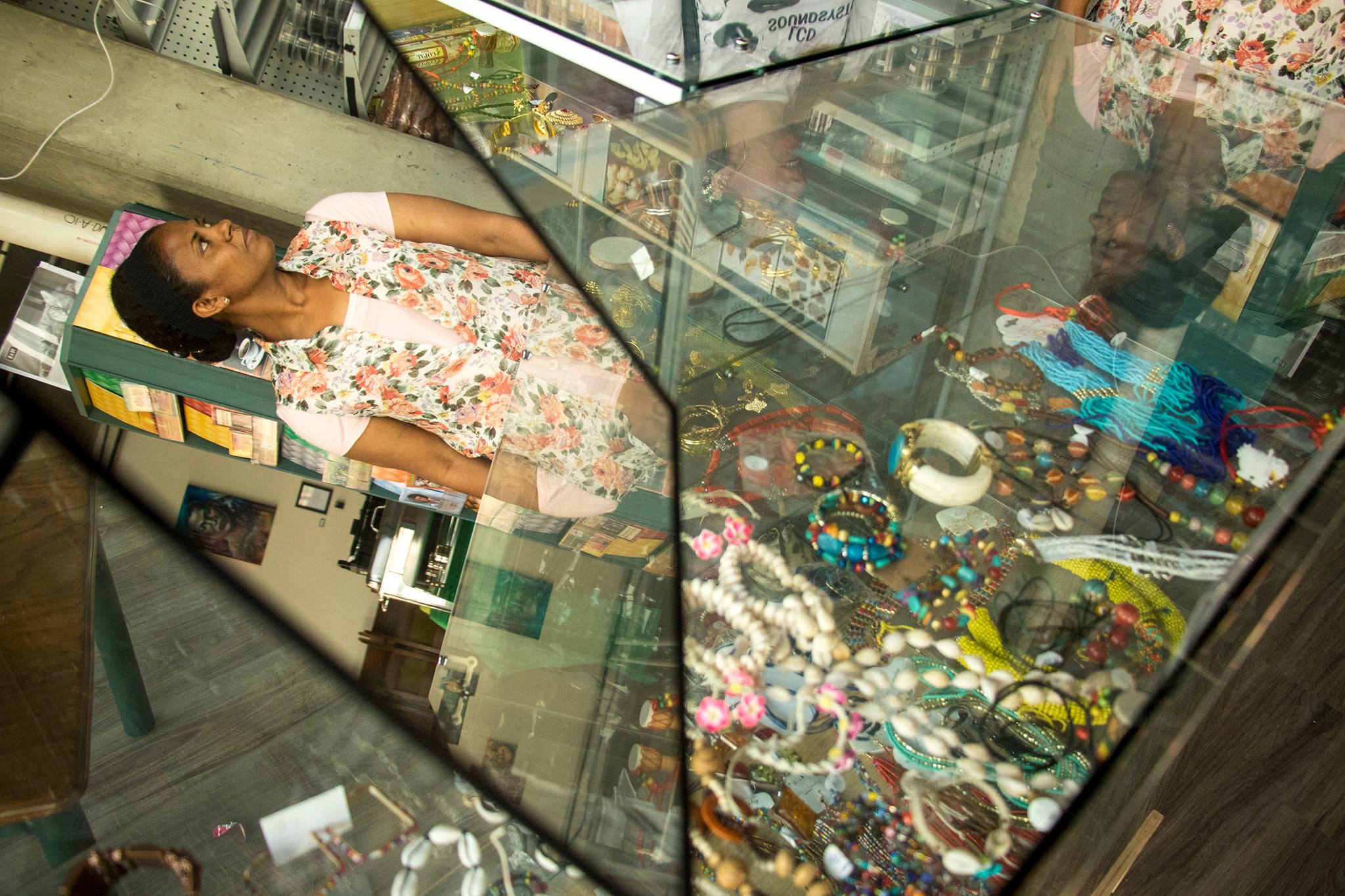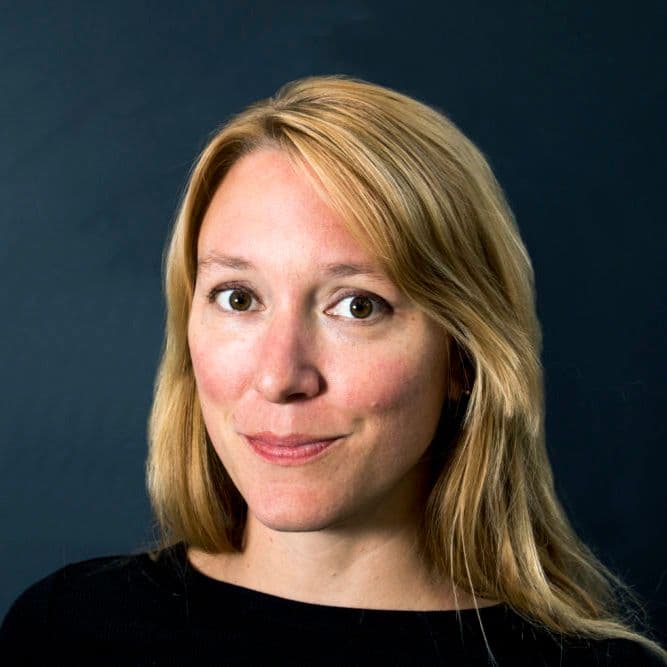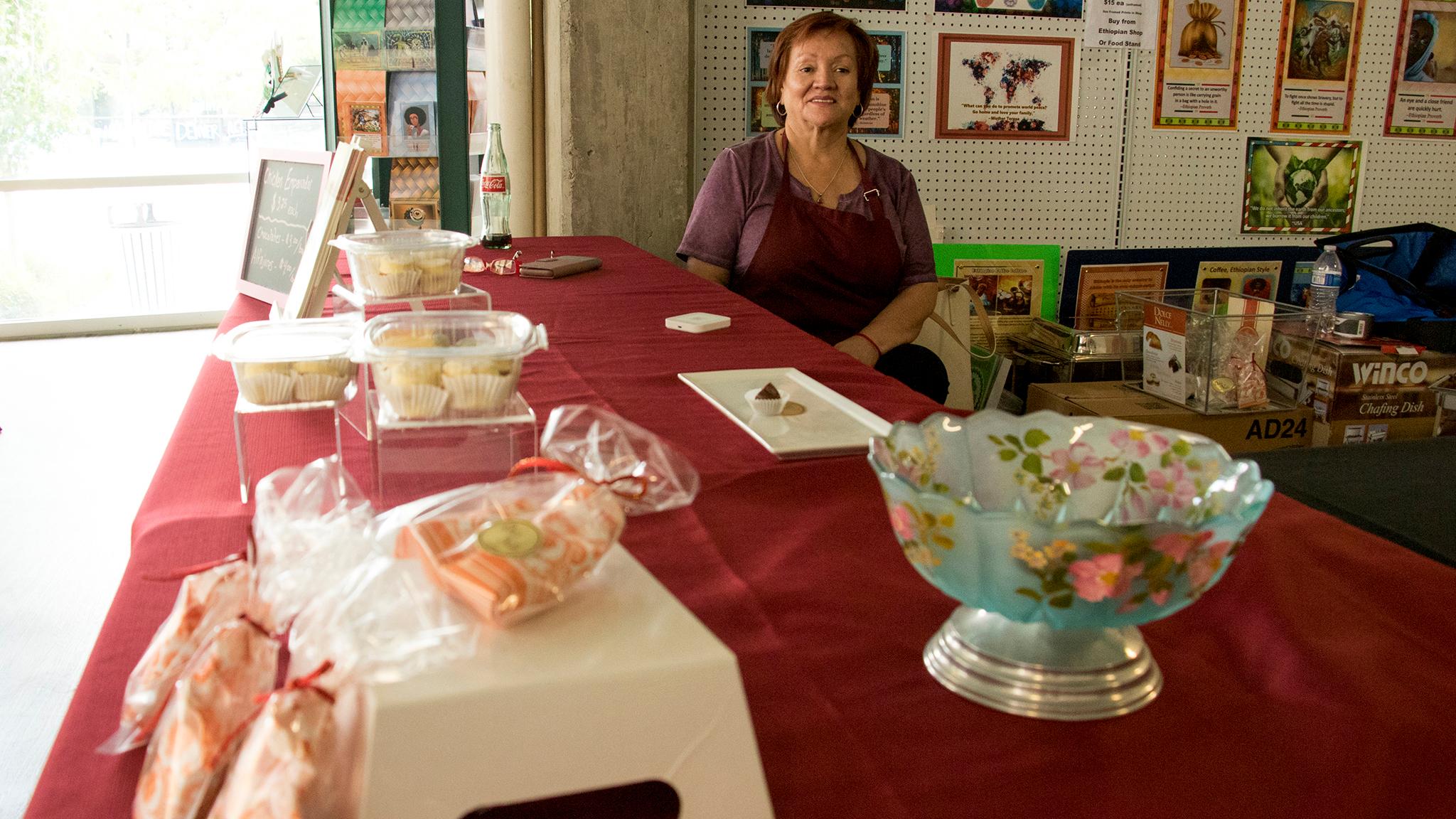It smells delicious and a little spicy inside Food Bridge International Marketplace.
Part of that is the shelves of spices in Sara Gebre's market, part of it is the Ethiopian coffee she brews, and part of it is Cornelia Gamboa's empanadas — already long gone after two hours of lunch customers.
Food Bridge is a nonprofit dedicated to giving people like Gebre and Gamboa new ways to access Denver's economy, and the women are involved in different ways. Gebre's market will be a fixture in the sunlight-filled corner space at Navajo Street and 10th Avenue, while Gamboa is there temporarily as part of Food Bridge's food entrepreneurship program. It offers an eight-week class on pricing, licensing and branding, followed by a chance to win seed money. The new entrepreneurs can then opt to practice it all in the incubator space for six months to a year.
"It’s been my project, it’s been my baby, it’s been a year in the making," said Marin Toscano, executive director and founder of Food Bridge. "We believe that everybody should have access to good, healthy, fresh food, and there’s not a lot of options in this neighborhood. It’s not technically a food dessert but it might as well be."
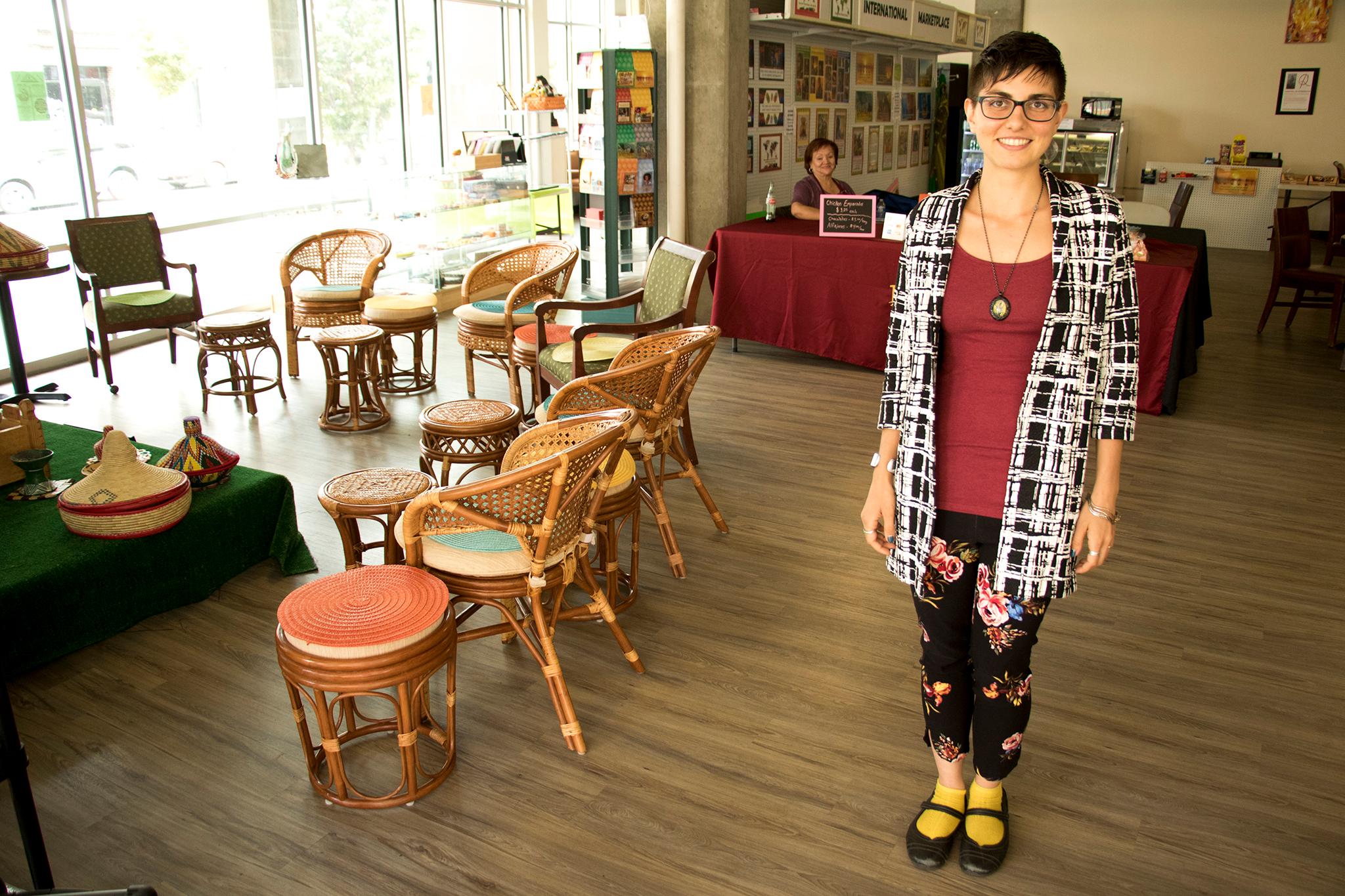
Food Bridge is occupying the first-floor storefront of a Denver Housing Authority building that has been vacant for about two years, according to Toscano, and they're renting it for under-market value.
The connection is part of the reason Gebre is there — her husband works for the DHA and had the idea for an international market. It was her idea to start brewing the Ethiopian coffee and performing traditional Ethiopian coffee services, which she also has done at Comal Kitchen in the Taxi complex. Gebre also created the prints and postcards featuring Ethiopian proverbs for sale amongst the international cooking provisions and jewelry.
"The main goal is to bring cultural food and to be a convenience store for the people around this area," Gebre said. "We live in Sun Valley. There are a lot of refugees and immigrants who want to have their own cultural food, but it’s hard to find here, so they go to Aurora to get their cultural food. ... They don’t have transportation, they have many kids. ... For a lot of people, it’s hard to get used to the food around them and to encourage people to learn about another culture."
It's not too tough to source the items they stock, though they're not busy enough to buy in bulk and they're still assessing what customers want and need, Gebre said.
Meanwhile, she's busy with the coffee service, too.
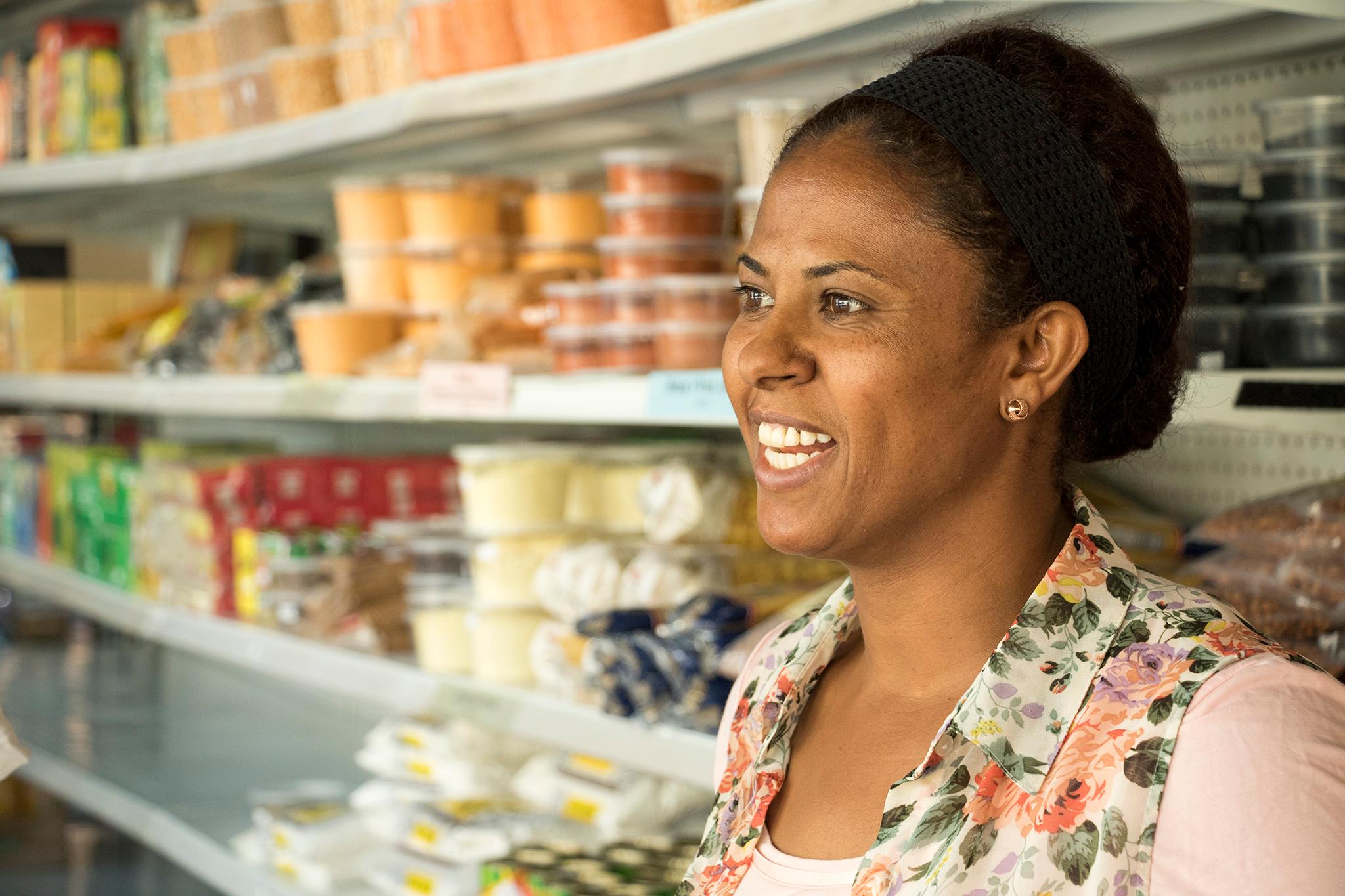
"As you know, coffee was invented in Ethiopia, so we have a very rich coffee culture. Our coffee culture is not: you set up a timer and you make it in a grab-and-go cup. Our coffee is a ritual, it’s a ceremony. And also you enjoy your coffee with your five senses," she said. "I want to share that with people, that culture, to create a sense of community, friendship. Now I have this space, so I want to use it for that purpose."
As of this week, entrepreneurs have started showing up, pop-up style, to sell their food. It's all prepared at kitchens off-site, which is one of the perks of the program. For Pamela Richard and her cookie business, it's been a game changer.
"Getting the kitchen is everything because I’m able to compete now," she said, standing next to an array of cookies on Food Bridge's front steps. "I can do wholesale now, which I can’t do out of my kitchen."
Richard started baking after she was let go from her job early last year. She was watching "The Great British Baking Show" when inspiration struck.
"I was just in my feelings about it and I was missing family and people that would nurture me and comfort me," she said, and watching the show made her miss the southern treats of her childhood. "So this was a way for me to reconnect with my family and my grandmother and get hugs — when I bake, I get hugs from my grandmother and family that are not with me."
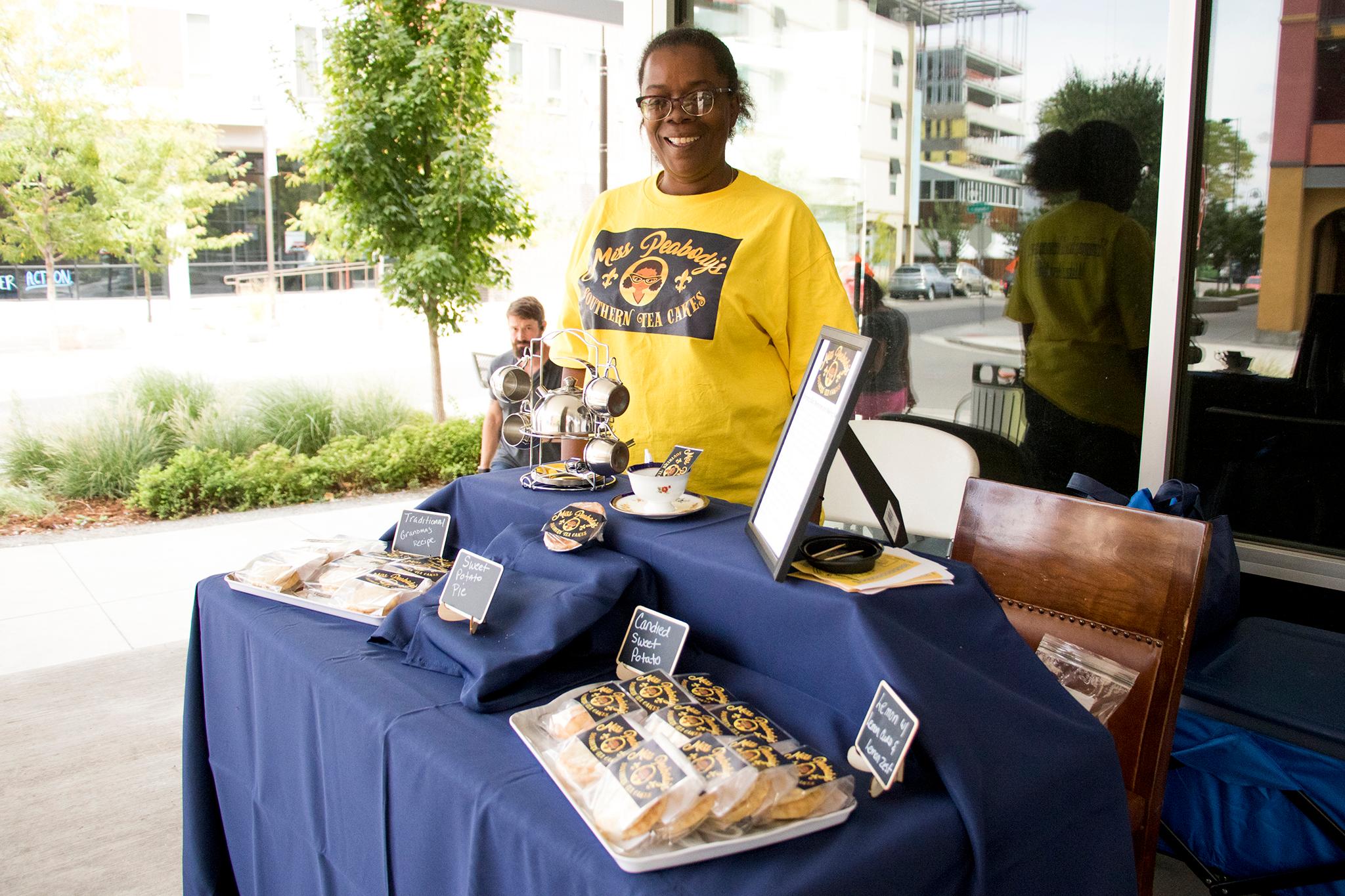
She named her new cookie business Miss Peabody's Southern Tea Cakes after her grandmother's nickname for her. (She's always worn glasses.)
And while she sold cookies outside, Cornelia Gamboa was selling empanadas inside — or at least she was. When we got there at 1 p.m., the 20 she'd made had been sold since she arrived at 11 a.m.
Gamboa's empanadas are a sort of blend of South American styles, according to her son and marketing man Julio Alvarez.
"Each country has different empanada flavors. They are from Peru and from Chile. My mom tries to mix different cultures and make something unique," he said.
Right now, if you want them, your safest bet is to get there early.
"One guy came here and tried it and came back with two guys, who needed like seven," Alvarez. "Now we know that we have to bring more, maybe 25, 30."
Like everyone at Food Bridge, they're working it out.
Food Bridge's market is open from 10 a.m. to 4 p.m. Monday through Thursdays and 11 a.m. to 6 p.m. Friday and Saturday. Fresh lunch will be served from 11 a.m. to 2 p.m. every Monday and Wednesday. On First Fridays, Food Bridge hosts a special event will all participating chefs, artists selling prints, food demos and Ethiopian coffee ceremonies from 5 to 9 p.m.
